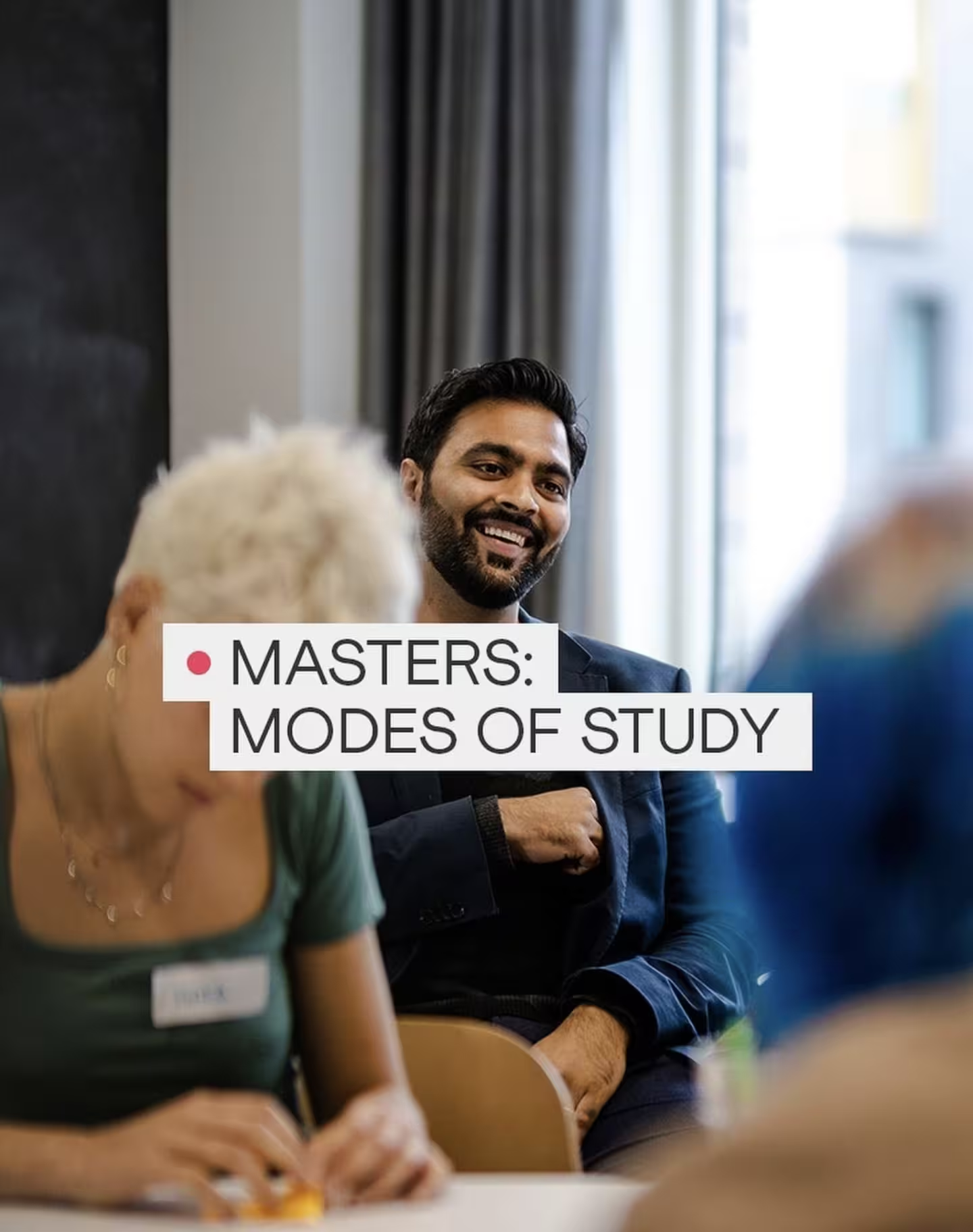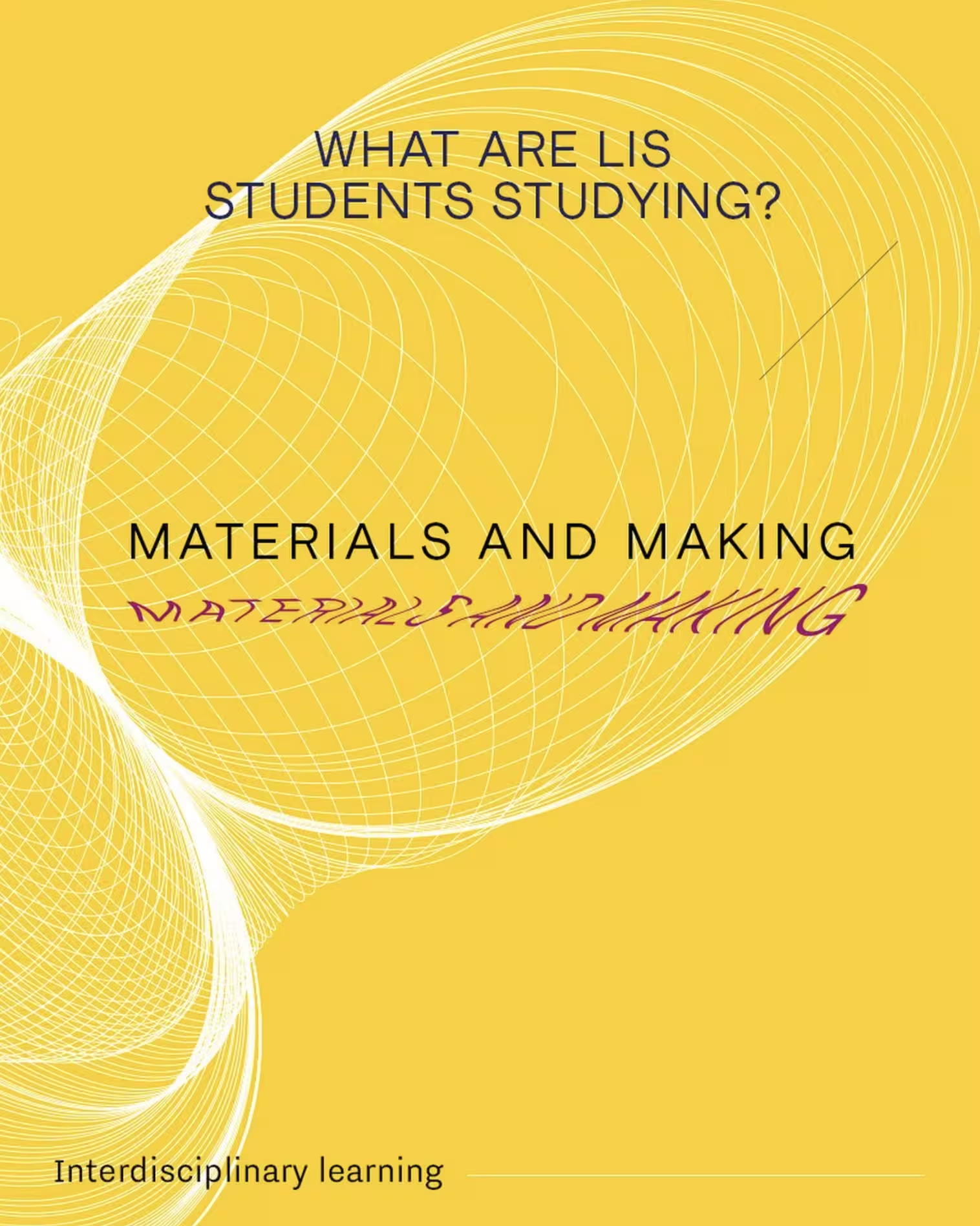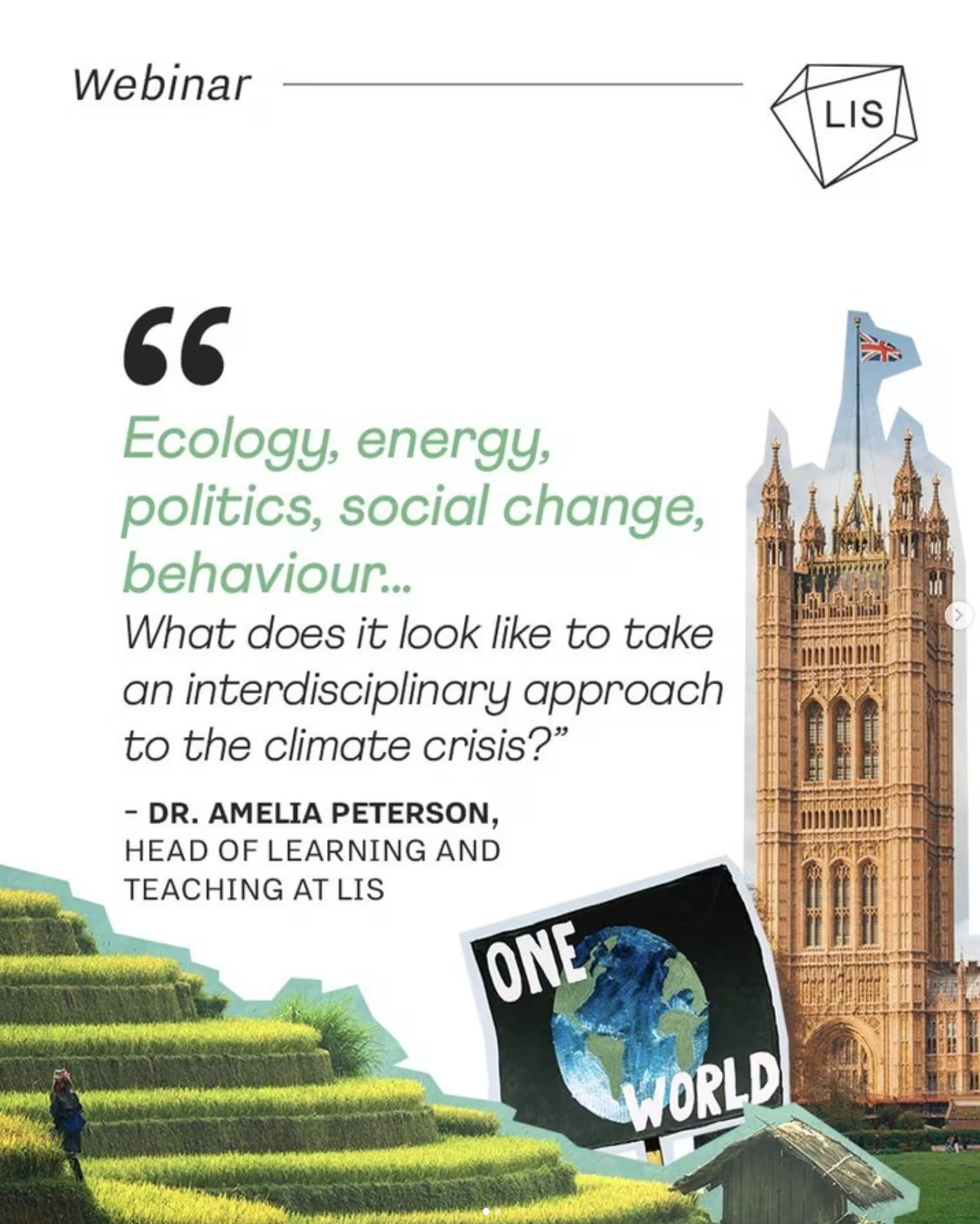Can I Apply to a Master’s Without a Bachelor’s Degree?

Most universities require students to have a bachelor's degree to pursue a master's programme.
However, with relevant experience and alternative academic qualifications, you can apply for a master's programme without a bachelor's.
At LIS, we encourage students from diverse backgrounds to apply for our MASc degree. If you have extensive practical experience and are passionate about interdisciplinary study, our programme could be perfect for you, even if you don't have a bachelor's degree.
This guide covers how to apply for a master's degree without a bachelor's qualification and why a postgraduate degree could be right for you.

Table of Contents:
- What is a Bachelor's Degree?
- What is a Master's Degree and Who Is It For?
- Can You Do a Master's Without a Bachelor's Degree in the UK?
- How LIS Helps Non-Traditional Students Pursue a Master's Degree
- Is a Master's Degree Right for You Without a Bachelor's?
- When Experience May Be Enough for a Master’s Degree
- Choose LIS for Non-Traditional Students
A bachelor's degree is an undergraduate programme that colleges and universities award once students have completed an academic course.
This programme equips students with foundational knowledge and skills in a particular field, which is usually a minimum requirement for most careers and a postgraduate qualification.
There are various types of bachelor's degrees in the UK:
- Bachelor of Arts (BA): Focus on liberal arts and humanities in literature, philosophy, and social sciences.
- Bachelor of Science (BS): Study STEM subjects, including Science, Math, Engineering, and Technology.
- Bachelor of Fine Arts (BFA): These degrees are designed for visual, performing, or applied arts students.
While these bachelor's degrees specialise in specific fields, LIS's BASc degree combines science and art fundamentals, delivering interdisciplinary knowledge and skills. Rather than completing a four-year degree for one specialisation, you can broaden your understanding of core disciplines, equipping you for various careers.
Why a Bachelor's Degree is Often Required for Master's Programmes
A bachelor's degree is typically required for master's programmes because it helps you gain fundamental subject knowledge and skills necessary to undertake graduate studies. Undergraduate programmes are the building blocks of a master's course.
Completing coursework, theory, and practical training in your undergraduate degree prepares you for the complexities of postgraduate degrees.

Here are a few more reasons why UK and international students usually need a bachelor's degree to pursue their master's:
- Shows readiness for advanced study: Achieving a bachelor's degree demonstrates your abilities to complete foundational education and handle the demanding workload and intellectual challenges of degree programmes. As a result, universities and colleges will consider you more likely to succeed in a graduate programme, which is more intensive.
- Builds research skills: A master's degree requires in-depth research, which may be challenging if you don't have basic research skills covered in an undergraduate degree. These programmes help you develop critical thinking skills, the backbone of postgraduate courses.
- Develops a standard base of knowledge: Completing a bachelor's degree ensures you have the minimum skills and knowledge you need to excel. By learning basic concepts of your desired field, building on that knowledge and understanding complex topics will be easier.
Standard Bachelor's Degree Admission Requirements in the UK
UK students must have specific A-level grades, BTEC qualifications, or equivalent international qualifications for students from outside the UK to apply for a bachelor's degree. Universities in the UK also consider UCAS points and International Baccalaureate (IB) scores. If you're an international student, you must have a minimum IELTS score of 6.0 to 6.5.
Specific entry requirements for studying in the UK vary between universities and colleges. It's imperative to check the admission requirements for your chosen programme before applying. If you don't meet all of the criteria, speak with the university or college's admissions office and determine how to improve your application.

A master's degree is an academic qualification awarded after completing a bachelor's degree.
These programmes provide students with specialised knowledge, research skills, and practical experience in a particular field. Master's degrees are pursued by individuals who want to advance their careers, gain in-depth expertise in a subject, or progress into a new profession.
Master's programmes are generally more focused and intensive than undergraduate degrees. These degrees involve coursework and research and may include practical elements such as internships, projects, or thesis writing.
Master's degrees are suitable for:
- Graduates Looking to Specialise: Individuals who want to specialise in a particular field of study or gain advanced knowledge to stand out in the job market.
- Career Advancers: Professionals looking to enhance their skills and knowledge to advance in their current careers or shift to a higher-level position.
- Career-Changers: Those who want to transition into a new field or industry by gaining relevant knowledge and qualifications.
- Research-Oriented Individuals: Students interested in contributing original research in a specific area, such as academic, industry, or scientific purposes.
Academic Depth and Career Development
Master's degrees provide a significant level of academic depth. Students will complete specialised coursework that builds on their foundational knowledge. These curricula challenge students' critical thinking, problem-solving, and analytical skills, preparing them for more complex tasks in the workforce.
Additionally, pursuing a master's degree can contribute to career development in several ways:
- Higher Earning Potential: A master's degree is often associated with higher salaries. Employers value these graduates' advanced expertise and knowledge.
- Career Advancement: A postgraduate degree can be essential for progression into leadership, managerial, or research roles.
- Professional Credibility: A master's degree can signal to employers that an individual possesses advanced skills and a strong commitment to professional growth.
Types of Master's Degrees Available in the UK
The UK offers a variety of postgraduate degrees, each tailored to specific fields of study. Some of the most common types of master's degrees include:
- A Master of Applied Science (MASc): Designed to help students gain research skills through complex problem-solving and advanced studies.
- Master of Arts (MA): Awarded in humanities, social sciences, and arts subjects. An MA focuses on theoretical and academic knowledge.
- Master of Science (MSc): Awarded in fields related to science, technology, engineering, and mathematics (STEM). An MSc tends to focus more on practical, research-based knowledge.
- Master of Business Administration (MBA): A professional degree designed for individuals pursuing leadership roles in business or management. The MBA is among the most well-known and respected master's qualifications globally.
- Master of Research (MRes): A research-focused degree that is often a stepping stone to a PhD. It focuses on independent research, preparing students for academic careers or research-based roles.
- Master of Laws (LLM): A specialised postgraduate law degree for individuals who want to deepen their knowledge of legal studies. It often focuses on a particular area of law (e.g., international law, corporate law).
Benefits for Non-Traditional and Career-Change Applicants

Master's degrees can be an excellent choice for mature students looking to shift careers or return to education after time in the workforce.
Here are the advantages of studying a master’s degree for non-traditional and career-change applicants:
- Recognition of Professional Experience: Many universities consider professional experience as part of their admissions criteria, particularly for business and management programmes. RPL also allows applicants to gain entry based on their previous work or life experience.
- Part-Time or Online Options: Non-traditional students benefit from part-time or online master's programmes, which offer greater flexibility for those balancing work and study.
- New Skills and Knowledge: A master's degree allows individuals to develop new skills necessary for a career change. In fields like business, education, and technology, many professionals progress to new industries via postgraduate study.
- Networking and Industry Connections: Master's programmes provide access to valuable networking opportunities, which can help career changers connect with employers or professionals in their new field.
- Practical Experience: Many postgraduate degrees include practical components such as internships, case studies, or projects that provide hands-on experience in the new field.
Pursuing a postgraduate certificate without a bachelor's degree is possible. There are many routes to achieve this, depending on the educational institution you're applying to. Some universities and colleges allow relevant professional experience or an integrated programme, provided you have qualifications and experience.
If you don't have a bachelor's degree, let's explore these entry routes to a master's degree.
Exceptions Based on Professional or Life Experience
Your experience may allow you to bypass specific entry requirements associated with a bachelor's degree, using a Recognition of Prior Learning (RPL) system.
RPL allows universities to assess your professional knowledge and skills equivalent to formal qualifications, such as a bachelor's degree. If you've worked in a specific field for several years or have developed particular expertise, universities might accept your experience as part of the entry criteria for postgraduate study.
Integrated Master's Degree for Students Without a Bachelor's Degree
An integrated master's degree is another pathway for individuals without a bachelor's degree to pursue postgraduate-level study in the UK. This degree combines undergraduate and postgraduate study into a single four-year programme. Integrated degrees are common in fields like engineering, science, and some areas of business.
Students are assessed based on their qualifications, work experience, or alternative qualifications such as A-Levels or equivalent. During the first years of the course, students will focus on undergraduate-level modules. In the later years, they transition into postgraduate-level study.
This type of degree is ideal if you haven't completed a bachelor's degree but have the necessary skills or qualifications to succeed at a postgraduate level.
LIS is committed to supporting all students who want to pursue a master's degree. We recognise that the path to higher education isn't always the same.
Our team actively promotes inclusion by valuing diverse educational backgrounds and professional experiences. This flexibility makes us an excellent choice for students who may not have followed the traditional academic route but want to further their education.
Valuing Real-World Experience and Interdisciplinary Thinking
One of the core principles at LIS is the recognition of real-world experience and interdisciplinary thinking. Many non-traditional students have developed practical, hands-on experience that is just as valuable as formal academic qualifications.
At LIS, we emphasise the importance of interdisciplinary approaches to solve complex problems, which benefits those with diverse backgrounds. This approach allows non-traditional students to explore various fields of knowledge, using their previous work or life experiences to enrich their learning process.
Admissions That Welcome Diverse Educational Backgrounds
LIS understands that non-traditional students may not have a standard educational background, such as a bachelor's degree in the subject area they want to study.
To accommodate this, we offer flexible admissions criteria that take into account a broader range of qualifications and experiences, including:
- Professional Experience: Applicants with substantial professional experience in a particular field can be considered for admission on a case-by-case basis.
- Alternative Qualifications: We consider alternative academic qualifications or non-degree pathways, such as vocational training or certificates.
- Personal Statement and Interview: All our students must submit a Critical Reflection as part of their application. This allows you to choose a problem you're most interested in and explain how interdisciplinary methods can solve it. Non-traditional students can showcase their knowledge and skills and prove why our degree is the best choice.
Our inclusive approach helps us identify students who might otherwise have been overlooked by traditional admissions processes, ensuring that we represent diverse backgrounds.
How LIS Supports Non-Traditional Students
At LIS, non-traditional students have the same access to resources as every other learner.
Here are a few of the student resources we provide to help every student excel in their master's programme:
- Tailored Academic Support: Our students receive support from a dedicated academic tutor. Your tutor will help personalise your learning experience and guide you to achieve your career goals.
- Flexible Study Options: Many students have to manage work and study. To accommodate this, we offer part-time or flexible study options, allowing students to gain their master's degrees at their own pace.
- Career Guidance and Placement Services: Our team provides career guidance to help students navigate the job market after completing their master's degree. Students will get support from a dedicated career coach to help them build their professional identities and expand their network.
By offering tailored support and flexible entry routes, LIS ensures that non-traditional students have the tools to succeed academically and professionally.
While it's possible to pursue a master's degree without a bachelor's in some cases, you must understand if this works for you and your career goals. A master's degree can be a significant investment of time, energy, and finances, so it's essential to consider whether you're prepared and if it aligns with your career or educational goals.
Key Questions to Ask Before Applying for a Master’s Degree

- Do I Have Relevant Work Experience? Master's programmes, especially those that accept students without a bachelor's degree, value professional experience. If you have significant experience in the field you want to study, it could make you a strong candidate for entry into a postgraduate programme.
- Am I Ready for the Commitment? Master's degrees are demanding and require dedication. Without the foundation of a bachelor's degree, you'll have to quickly grasp advanced concepts, which could make the course more challenging.
- What Are My Career Goals? Consider how a master's degree aligns with your career aspirations. If you want to move into a higher-level position or change industries, a master's degree is the solution.
- Have I Researched the Programme's Entry Requirements? It's crucial to research the admissions criteria for each programme. Understanding the specific entry routes available will help you assess whether you meet the requirements.
- What Will I Gain from the Master's Degree? Consider what you want to gain from the master's programme. Will it provide you with the advanced skills, research opportunities, and professional connections you need to take your career to the next level? Are you seeking academic recognition, professional development, or a combination?
Professional experience can be a suitable substitute for a bachelor's degree when applying for a postgraduate programme. Many universities recognise that practical experience in a relevant field can provide you with the skills and knowledge needed for postgraduate study.
Here are examples of industries where experience may count more than a degree:
- Business and Management: Many business programmes, including MBAs, prioritise work experience over academic qualifications, particularly for candidates who have managed teams or projects or made strategic business decisions.
- Creative Industries: Media, design, and communications fields often value a strong portfolio and work experience more than formal academic qualifications.
- Technology and IT: In software development or IT management industries, hands-on experience with relevant technologies and tools can often outweigh formal education.
However, for more academic or research-focused master's programmes (such as MSc in a scientific field), gaining entry without a bachelor's degree may be more difficult, as these programmes often require a foundational understanding of complex concepts.
Here are a few strategies to strengthen your application and increase your chances of being accepted:
Highlight Your Work Experience
Emphasise your professional experience, particularly how it relates to your field of study. If you've taken on leadership roles, managed projects, or developed specialised skills, showcase these in your CV and personal statement. Universities value candidates who bring practical, real-world knowledge into the classroom.
Leverage Alternative Qualifications
Include certifications, training programmes, or other relevant educational achievements in your application. Courses that relate to the programme you wish to pursue or show your ability to work at an advanced level can strengthen your case.
Write a Compelling Personal Statement
Your personal statement key. It's your opportunity to explain why you are a strong candidate for the programme, even without a Bachelor's degree. Highlight why you want to study the programme, how your professional experience has prepared you for postgraduate study and your long-term career goals.
Request Strong References
Get references from employers, mentors, or industry professionals who can vouch for your skills and experience. A letter of recommendation from someone who has seen you excel in the field can boost your application.
Be Prepared for an Interview
If you're applying to a programme that requires an interview, you need to prepare. You will have to discuss your experience, motivation for pursuing the master's, and your readiness to undertake advanced academic study. An interview is your chance to show that your experience makes you a valuable candidate, even without a formal educational background.
Consider Preparation Courses
Some universities offer preparatory or bridging courses to help you build the foundational knowledge required for a master's programme. These are great ways to enhance your academic preparedness before starting your studies.
If you have extensive professional experience in a relevant subject, you may be eligible to study a master's degree. Some universities and colleges also offer opportunities to complete an integrated degree programme.
At LIS, we make learning accessible and consider students without a bachelor’s degree but with extensive experience for our master’s programme. Ready to get your master’s degree? Contact LIS today.
Share this story
Sign up for our newsletter
Don't miss out on important updates including course information, new announcements, Open Day dates and the latest LIS news.

.png)












































.svg)

.svg)









.webp)
This is a comment related to the post above. It was submitted in a form, formatted by Make, and then approved by an admin. After getting approved, it was sent to Webflow and stored in a rich text field.